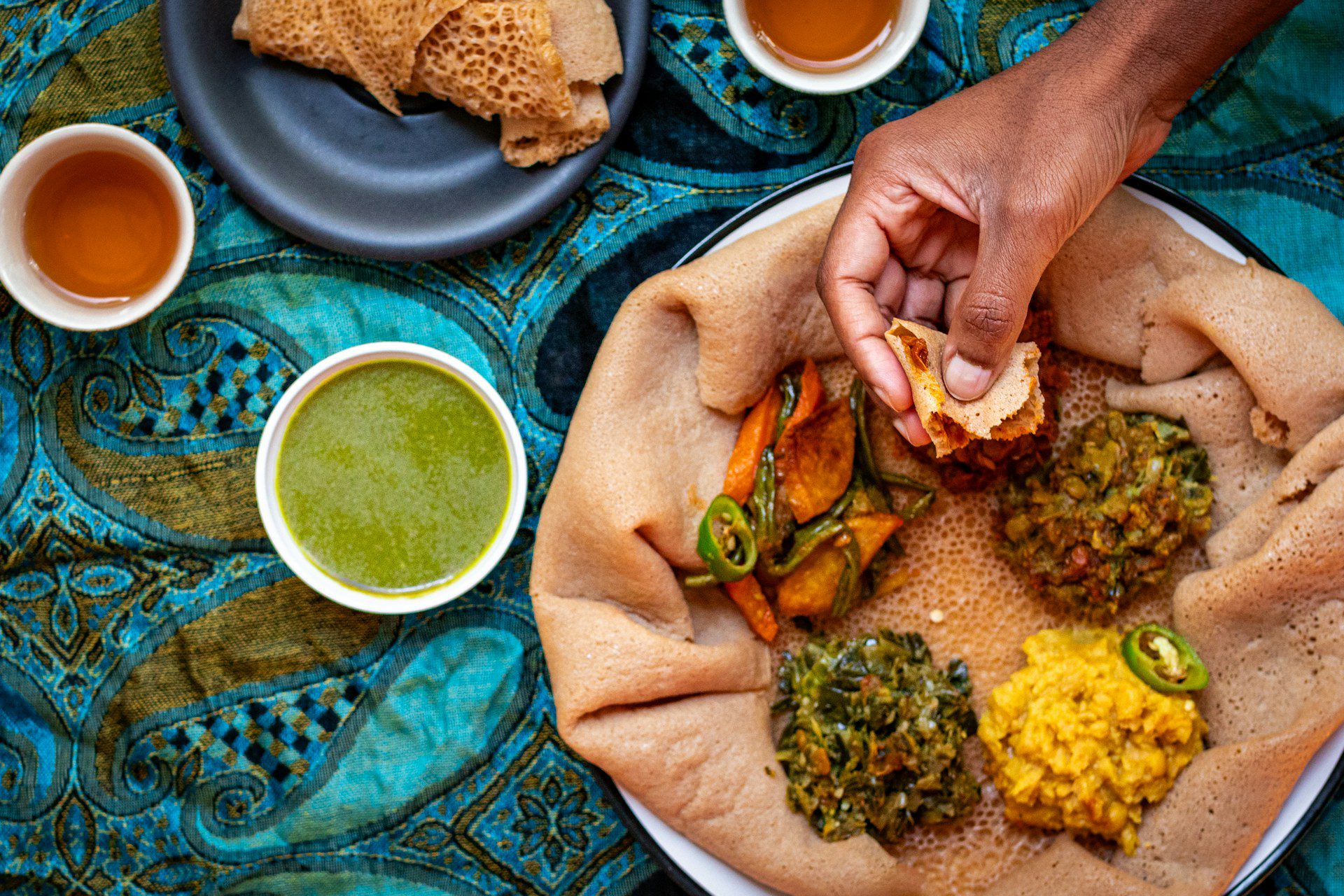Morocco’s vibrant and flavourful cuisine is a testament to its rich cultural heritage and diverse influences. Moroccan culinary tours offer travellers an immersive experience, allowing them to taste the country’s iconic dishes and understand the stories behind them. From bustling souks filled with aromatic spices to traditional cooking classes, these tours uniquely explore Morocco’s culinary landscape.
For food enthusiasts, a Moroccan culinary tour can be a dream come true. These tours often include visits to local markets, hands-on cooking classes, and meals in traditional settings. By participating in these activities, travellers not only taste incredible food but also learn about the techniques and traditions that make Moroccan cuisine so special. Join us as we delve into the delights of North African cuisine and explore the culinary wonders that Morocco has to offer.
Exploring Traditional Moroccan Dishes
Moroccan cuisine is renowned for its rich flavours, aromatic spices, and diverse ingredients. Here are some traditional Moroccan dishes that you can expect to encounter on culinary tours:
– Tagine: Named after the earthenware pot in which it is cooked, tagine is one of Morocco’s most famous dishes. It features slow-cooked meats, poultry, or vegetables, often combined with fruits like apricots or prunes and seasoned with cumin, coriander, and saffron. The result is a tender, flavorful stew that is often enjoyed with couscous or bread.
– Couscous: Another staple of Moroccan cuisine, couscous is made from steamed semolina grains. It is usually served as a bed for vegetables, meats, and a flavourful broth. Couscous Fridays are a common practice in Moroccan households, celebrating the end of the week with this beloved dish.
– Pastilla: This savoury pastry combines layers of thin, flaky dough with a filling of pigeon or chicken, almonds, and eggs, all seasoned with a blend of spices and a touch of cinnamon. Often dusted with powdered sugar and cinnamon, pastilla offers a delightful combination of sweet and savoury flavours.
Top Culinary Tour Experiences in Morocco
Moroccan culinary tours provide a rich array of experiences that cater to food enthusiasts eager to explore the country’s diverse food scene. Here are some of the top culinary tour experiences you can enjoy:
Marrakech Food Tours:
1. Souk Tours: Explore the bustling souks of Marrakech with guided tours that take you through the vibrant market stalls. Sample street food, buy fresh spices, and learn about traditional ingredients.
2. Food Tastings: Join food-tasting tours that introduce you to a variety of local delicacies, from spiced meats to sweet pastries, while walking through the medina’s narrow alleys.
Fez Culinary Adventures:
1. Market Visits: Discover the local markets of Fez, where you can witness the daily life of Moroccan vendors and purchase fresh produce, spices, and meats for your culinary explorations.
2. Traditional Meals: Participate in tours that include meals in traditional riads, where you can enjoy dishes like tagine and couscous cooked by local chefs.
Coastal Culinary Tours:
1. Essaouira Seafood: Taste the freshest seafood in the coastal town of Essaouira. Participate in tours that take you to local fish markets and beachside stalls, where you can sample grilled fish and seafood tagine.
2. Cooking by the Sea: Enjoy cooking classes by the sea that focus on preparing traditional Moroccan seafood dishes using the catch of the day.
Rural Culinary Excursions:
1. Berber Village Visits: Venture into the Atlas Mountains and visit Berber villages where you can enjoy home-cooked meals with local families. Learn about Berber cooking techniques and traditions.
Cooking Classes and Workshops
Participating in cooking classes and workshops is a fantastic way to dive deep into Moroccan cuisine. These hands-on experiences allow travellers to learn cooking techniques and recipes directly from local chefs and home cooks. Here are some key benefits and opportunities:
Mastering Traditional Recipes:
1. Tagine Making: Learn how to prepare and cook various types of tagine, from chicken with preserved lemons and olives to lamb with prunes and almonds. Understand the importance of spices and how to layer flavours.
2. Bread Baking: Experience the art of Moroccan bread-making. Join workshops where you can bake traditional breads like khobz, a type of flatbread, using traditional methods and clay ovens.
Learning from Locals:
1. Home Cooking Classes: Many tours offer cooking classes in local homes. This intimate setting provides an authentic experience and a chance to learn family recipes passed down through generations.
2. Market to Table: Participate in classes that start with a trip to the market. Shop for fresh ingredients and then head to the kitchen to prepare a meal. This offers an understanding of ingredient selection and meal preparation.
Exploring Unique Techniques:
1. Spice Blending: Discover the secrets of Moroccan spice blends, such as ras el hanout. Learn how to mix and grind spices to create the perfect seasoning for your dishes.
2. Pastry Workshops: Try your hand at making Moroccan pastries like briouats and chebakia. These workshops often cover techniques for handling dough and achieving the perfect balance of flavours.
Tips for Maximising Your Moroccan Culinary Adventure
To ensure you get the most out of your Moroccan culinary tour, here are some useful tips to consider:
Plan Ahead:
1. Research Tours: Look for tours that offer a variety of experiences, from market visits to cooking classes. Read reviews and choose reputable providers.
2. Book in Advance: Popular tours and workshops can fill up quickly, so booking early ensures you get a spot.
Immerse Yourself:
1. Engage with Locals: Take the opportunity to speak with chefs, market vendors, and fellow travellers. Ask questions and show interest in their culinary traditions.
2. Try Everything: Be adventurous with your taste buds. Trying a wide range of dishes will give you a better understanding of Moroccan cuisine.
Prepare for Your Trip:
1. Dress Comfortably: Wear comfortable clothing and shoes, especially for market tours and cooking classes that involve a lot of walking and standing.
2. Stay Hydrated: Moroccan weather can be hot, so bring water and stay hydrated, especially during outdoor activities.
Conclusion
Moroccan culinary tours offer a unique gateway into the heart of North African cuisine. From exploring traditional dishes like tagine and couscous to participating in engaging cooking classes, these tours provide an immersive experience that is both educational and delightful. Understanding the intricacies of Moroccan spices, techniques, and cultural influences will give you a deeper appreciation of the cuisine.
Ready to embark on a Moroccan culinary adventure? Explore our carefully curated tour packages at Tourz Store and savour the delights of Moroccan cuisine firsthand. Visit our website now to find the perfect culinary tour for you!

















